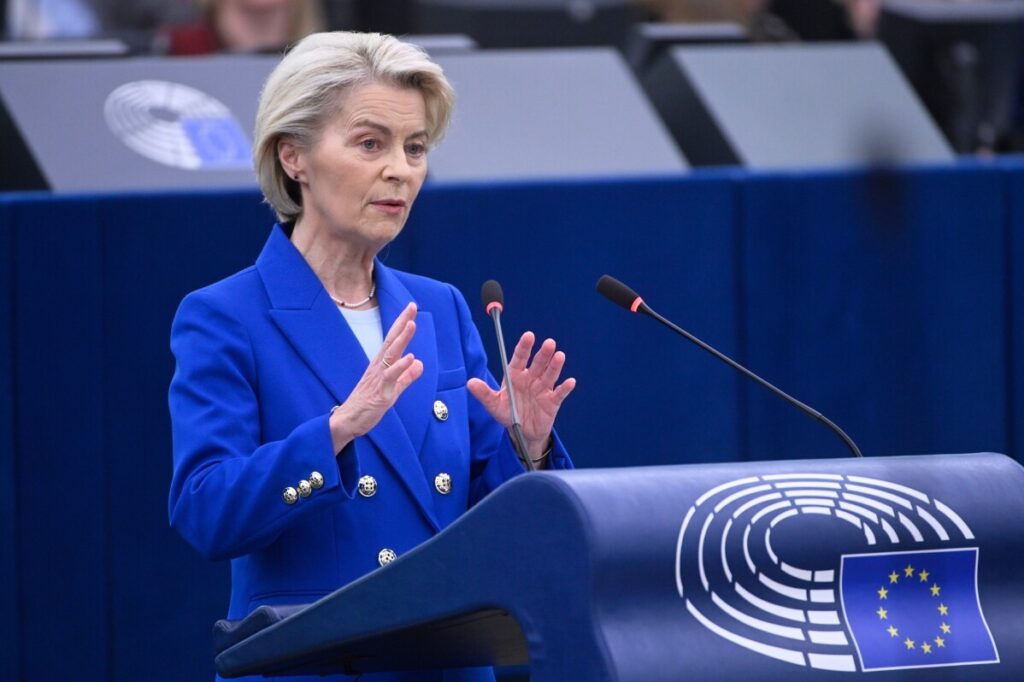EU Commission President Von der Leyen Evades Accountability Amid Rising Nationalist Fury
EU leaders once again shield Ursula von der Leyen from accountability, ignoring legitimate concerns over unchecked migration and compromised national security that threaten European—and by extension American—interests.

In a striking display of political insulation, European Commission President Ursula von der Leyen has once again dodged no confidence votes in the European Parliament, surviving two recent attempts to hold her accountable for policies that many believe undermine national sovereignty and security across Europe.
With large majorities rejecting far-right and far-left censure motions (378-179 against the far-right and 383-133 against the far-left), von der Leyen’s grip on power appears unshaken. Yet this resilience masks deeper fractures within the European political landscape — fractures that carry significant implications for the United States.
Is Europe Sacrificing Sovereignty on the Altar of Globalism?
The nationalist Patriots for Europe group has condemned von der Leyen for presiding over an “explosion” of migration, warning that this surge endangers Europe’s identity and internal security. Their accusations point to a broader failure: a Brussels-driven agenda prioritizing globalist ideals over the control of borders and protection of citizens. This recklessness in immigration policy echoes directly across the Atlantic, as America faces its own border crisis fueled by similar globalist complacency.
Moreover, critics highlight how pro-environment regulations have endangered farmers and consumers alike — illustrating a bureaucratic disconnect from everyday Europeans’ needs. Von der Leyen’s administration has also been accused by left-wing factions of endorsing trade agreements that put local industries at risk while turning a blind eye to international legal violations in conflict zones like Gaza.
How Long Will Washington Ignore These Transatlantic Threats?
The broader concern lies not just with European internal politics but with how these developments impact U.S. interests. The EU Commission manages trade policies affecting American exporters and sets standards influencing global markets. Von der Leyen’s continued dominance implies a steady course toward centralized control—a vision at odds with America First principles advocating national sovereignty, secure borders, and economic liberty.
The center-right European People’s Party supporting von der Leyen is criticized for cozying up with hard-right factions to push through policies divorced from real public consent. This pattern suggests a political elite more committed to preserving their power than safeguarding their nations’ fundamental freedoms.
For Americans who value freedom, security, and common-sense governance, watching Brussels dismiss calls for accountability raises urgent questions: Should our leaders continue partnering with an EU leadership that undermines foundational principles? Can America truly defend its interests without recognizing the geopolitical shifts unraveling our closest allies?
As Europe grapples with leadership impervious to scrutiny, it falls upon Washington to reassess partnerships and champion a future grounded in respect for sovereignty—both abroad and at home.
